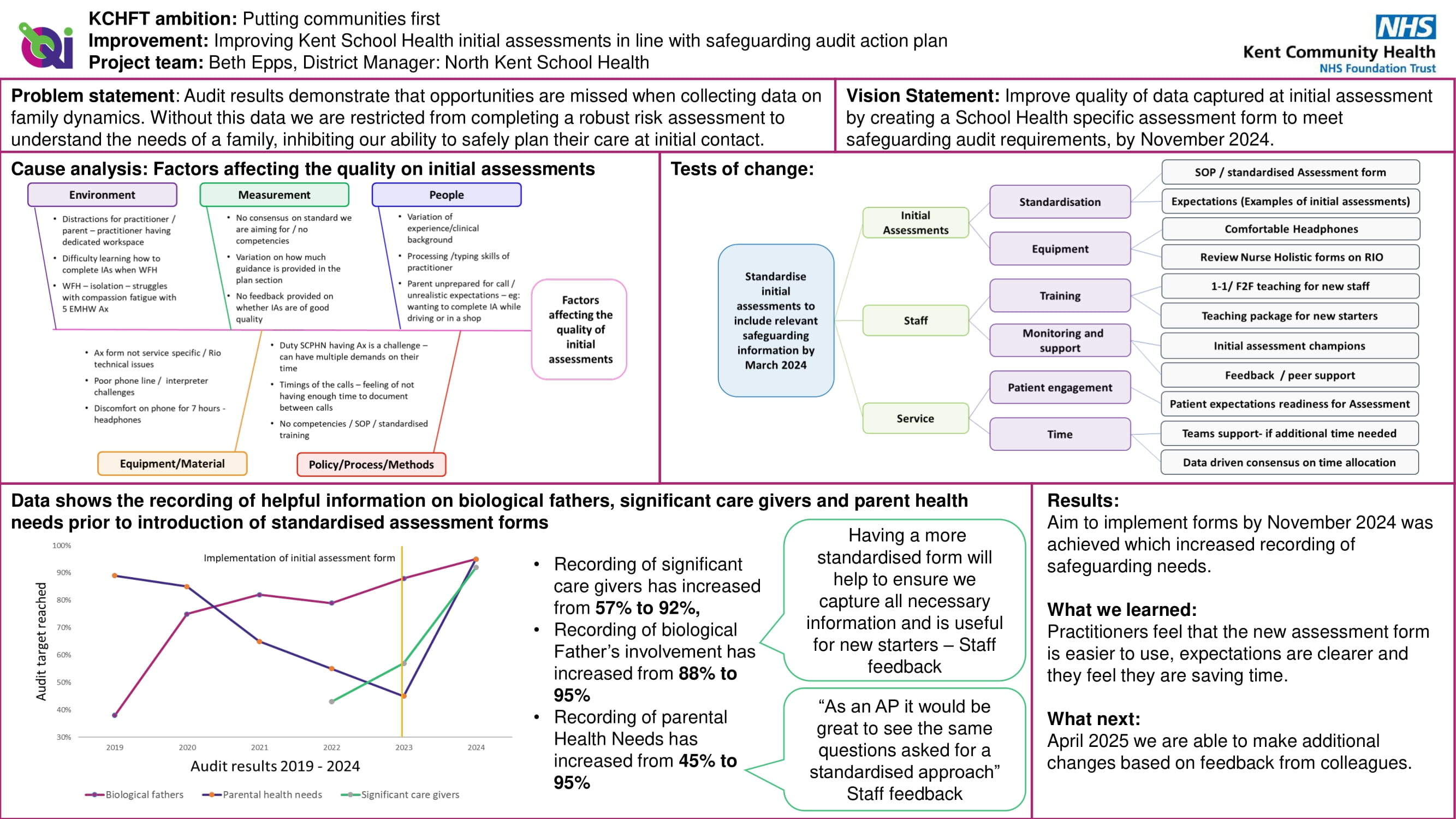A new approach to how school health professionals gather and record information is making a real difference for families across Kent, enabling a fuller picture of each child’s life and the support they may need.
Kent Community Health NHS Foundation Trust’s Kent School Health Team has developed a new initial assessment form, to make sure the right information is gathered from families from the very beginning.
It might sound like a simple change, but by asking clearer, more focused questions, health professionals can now spot potential issues earlier and offer more personalised support. The new way of working also puts greater focus on the whole family — including fathers and other key caregivers — to make sure no one is left out.
Instead of using a general form used by many of the trust’s services, the new version asks targeted questions, such as how a child is sleeping, how they’re getting on at school and whether they have any sensory needs or developmental concerns. These important insights help healthcare professionals understand a child’s world more clearly — and step in with the right support, if needed.
The new form has resulted in a big leap in the amount of helpful information being recorded. For example, in just a short time, the number of records including parental health needs jumped from 45 per cent to 95 per cent. Similarly, information about key caregivers and the involvement of biological fathers saw big increases too.
But it’s not just about the questions — it’s also about time. While colleagues were improving how they gathered information, they were also looking for ways to spend less time on admin and more time with families. That’s where voice recognition came in.
Now, instead of typing up lengthy notes, many team members are using voice-to-text technology to capture their assessments more quickly and easily. Not only does this lighten the paperwork load, it means practitioners can focus more of their attention on the people in front of them.
Clinical Lead for School Nursing Allison Leigh said: “The bespoke and improved single form for our initial assessments, rather than having lots of individual forms, means clinicians save vital time which can then be directed back into patient care. Using voice recognition to make our notes saves even more time. These two things are helping us to spend more time with families and to enhance opportunities to safeguard and protect children and young people.”
The two changes — better forms and quicker ways of recording notes — go hand in hand. Together, they help staff get to the heart of what families need, without getting bogged down by screens and forms. That means families are better supported, risks are spotted sooner, and healthcare professionals have more time to do what they do best — listen, care, and make a difference.
The work was led by North Kent School Health district managers Beth Epps and Rachel Hawkett and business manager Heidi Leverington. They made sure their colleagues were involved from day one, helping to shape the questions based on their own experience working with families.
Beth said: “We wanted to make it easier for colleagues to ask the right things and capture the information that really matters. The form now gives us a clearer understanding of the child’s life and how we can help them thrive.”
The project forms part of the trust’s wider ambition to deliver more sustainable care, supported by digital tools that give staff back time to focus on people — not paperwork.
And with even more improvements in the pipeline, including projects to look at demand and capacity across teams, the focus remains firmly on one thing: providing the best care for every child and family.
A quality improvement (QI) approach was used with both the forms review and the voice recognition projects, to bring both ideas to life.
Click anywhere on the image below to read, download this project summary


